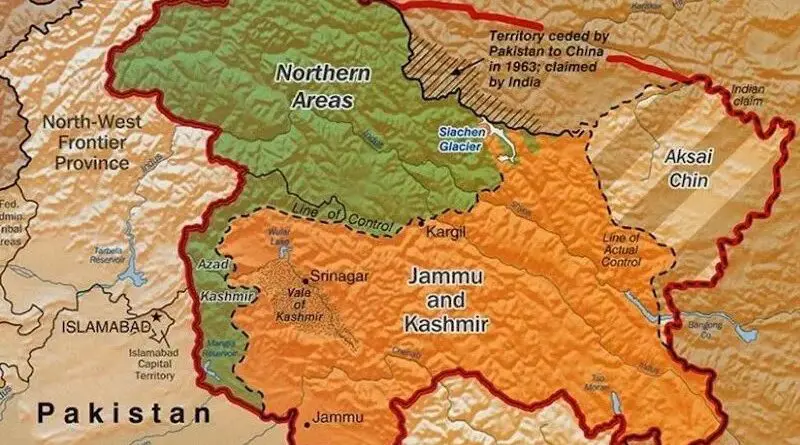The Unsettling Verdict – OpEd
The recent judgment by the Supreme Court of India regarding the status of Indian Illegally Occupied Jammu and Kashmir (IIOJK) has ignited a fresh wave of tensions between India and Pakistan. Pakistan, in a strong and unequivocal response, rejected the decision, considering it another manifestation of India’s pliant judiciary under the ruling dispensation. The international implications of this decision are profound, given the longstanding dispute over Kashmir, which has been on the UN Security Council’s agenda for over seven decades.
The Indian Supreme Court’s recent decision upholding the government’s illegal move to revoke the special status of Jammu and Kashmir, including the scrapping of Article 370, has deepened the divide between the two nuclear-armed neighbors. This move, carried out by Prime Minister Narendra Modi’s Bharatiya Janata Party (BJP) in 2019, has far-reaching consequences, not only for the region but for the international community.
Pakistan’s Foreign Minister, Jalil Abbas Jilani, minced no words in denouncing the decision, emphasizing that Jammu and Kashmir is an internationally recognized dispute, and India must adhere to UN resolutions. The revocation of Article 370, which granted special status to the region, was a unilateral decision by India, and Pakistan contends that any determination on Jammu and Kashmir should align with relevant UN Security Council resolutions and the aspirations of the Kashmiri people. Crucially, Pakistan does not acknowledge the supremacy of the Indian Constitution over Jammu and Kashmir, and FM Jilani argues that any process subservient to the Indian Constitution holds no legal significance in this context. This stance underscores the deep-rooted nature of the conflict and the complex legal and political dimensions that surround it.
The rejection of the Indian Supreme Court’s decision is not just a diplomatic maneuver; it reflects a fundamental disagreement on the status and future of Kashmir. FM Jilani contends that India’s attempts to annex IIOJK are destined to fail, criticizing the Supreme Court’s endorsement of India’s actions in 2019 as a distortion of justice. The verdict, according to him, neglects the internationally recognized disputed nature of the Jammu and Kashmir issue and fails to address the aspirations of the Kashmiri people. Furthermore, FM Jilani emphasizes that measures such as the restoration of statehood or State Assembly elections cannot substitute the right to self-determination for the Kashmiri people. This assertion reinforces the core demand of Pakistan and Kashmiri separatists for a free and fair plebiscite to determine the future of the region.
President Dr. Arif Alvi adds weight to Pakistan’s rejection of the decision, expressing dismay over the Indian judiciary’s alleged succumbing to the fascist Hindutva ideology. The president’s remarks highlight the broader concern that decisions by Indian courts, in various historical cases, have been perceived as favoring the majority Hindu population over minority groups, including Muslims. The international community must take note of these developments, especially as Pakistan urges a focus on the ongoing human rights violations in IIOJK and condemns India’s unilateral actions since August 2019 for violating international law and relevant UN Security Council Resolutions. The situation demands attention, not just from regional players but from global stakeholders who have a vested interest in maintaining peace and stability in South Asia.
As the two nations stand at this diplomatic crossroads, it is crucial for the international community to encourage dialogue and peaceful resolution mechanisms. Pakistan’s continued political, diplomatic, and moral support for the people of IIOJK in their pursuit of the inalienable right to self-determination must be acknowledged. The world cannot afford to turn a blind eye to the implications of this dispute, given the nuclear capabilities of both India and Pakistan.
In conclusion, the recent Supreme Court decision in India has intensified the already complex and sensitive situation surrounding Kashmir. The rejection by Pakistan is not just a diplomatic maneuver; it reflects a deep-seated disagreement over the legal, political, and moral aspects of the Kashmir conflict. The international community must play a proactive role in facilitating dialogue and finding a peaceful resolution to this longstanding dispute, ensuring that the aspirations of the Kashmiri people are given due consideration on the global stage.

